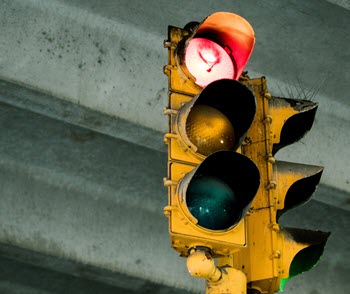There’s a fascinating article over at LinkedIn: “You Are What You Signal,” in which the authors discuss the concept of “signaling theory” in advertising, best summarized in simple terms as the way in which ads “signal” a consumer into trusting a particular brand.
Signaling theory posits that consumers trust brands based less on the compelling nature of the ad’s message, but on how expensive the advertising looks. Apparently (and this was all news to me), when a product is heavily advertised or advertised in an innately expensive way, consumers believe either 1) the quality of the product must be high, or 2) the company advertising has already persuaded lots of people to buy its product, presumably to justify the investment.

To quote the article:
“That’s why companies like Apple only buy the most expensive (ad) inventory. Apple knows that expensive signals quality, which sells more phones.”
This is the type of theory that brand marketers love and demand marketers despise. Brand marketers want you to believe that nothing matters more than the emotional connection you establish with the consumer. Conversely, demand marketers (this writer included) care little about the brand, and like to claim that, in today’s data-driven world, marketing success is all about measurable engagement.
Like many things, the truth probably lies somewhere in the middle. Not all of us are selling phones or other products where branding and emotional connection and image clearly make a difference. I’m not a Starbucks fan just because I like their coffee.
However, in the world of digital media, signaling theory might give us a reason to look at online advertising as more than just generating clicks and form conversions. As a B2B demand marketer, I usually recoil at the word “awareness,” as in: “we need to generate awareness for the product,” because it suggests that buyers of very complex B2B products are somehow influenced by mere familiarity. But, if you accept the premise of signaling theory, and the authors at LinkedIn call it “one of the only scientifically backed ideas in all of advertising,” then digital advertising, even in the absence of measurable response, may serve a real purpose in building brand credibility.
There’s another ramification for signaling theory in B2B marketing, and it has to do with creative. Very few B2B companies can rival Apple for beautiful (read: “expensive-looking”) ads, and I’ve bemoaned the general state of B2B creative previously in this space. As demand marketers, we’re trained not to care so much about how an ad (or email, or landing page) “looks” as long as it performs. But signaling theory would say that the “look” of creative does matter, even if no-one clicks on the ad.
In an era when B2B marketing sometimes seems to consist of little more than automated emails, it’s an argument for demand marketers to raise their game creatively.
Photo by Hermes Rivera on Unsplash



